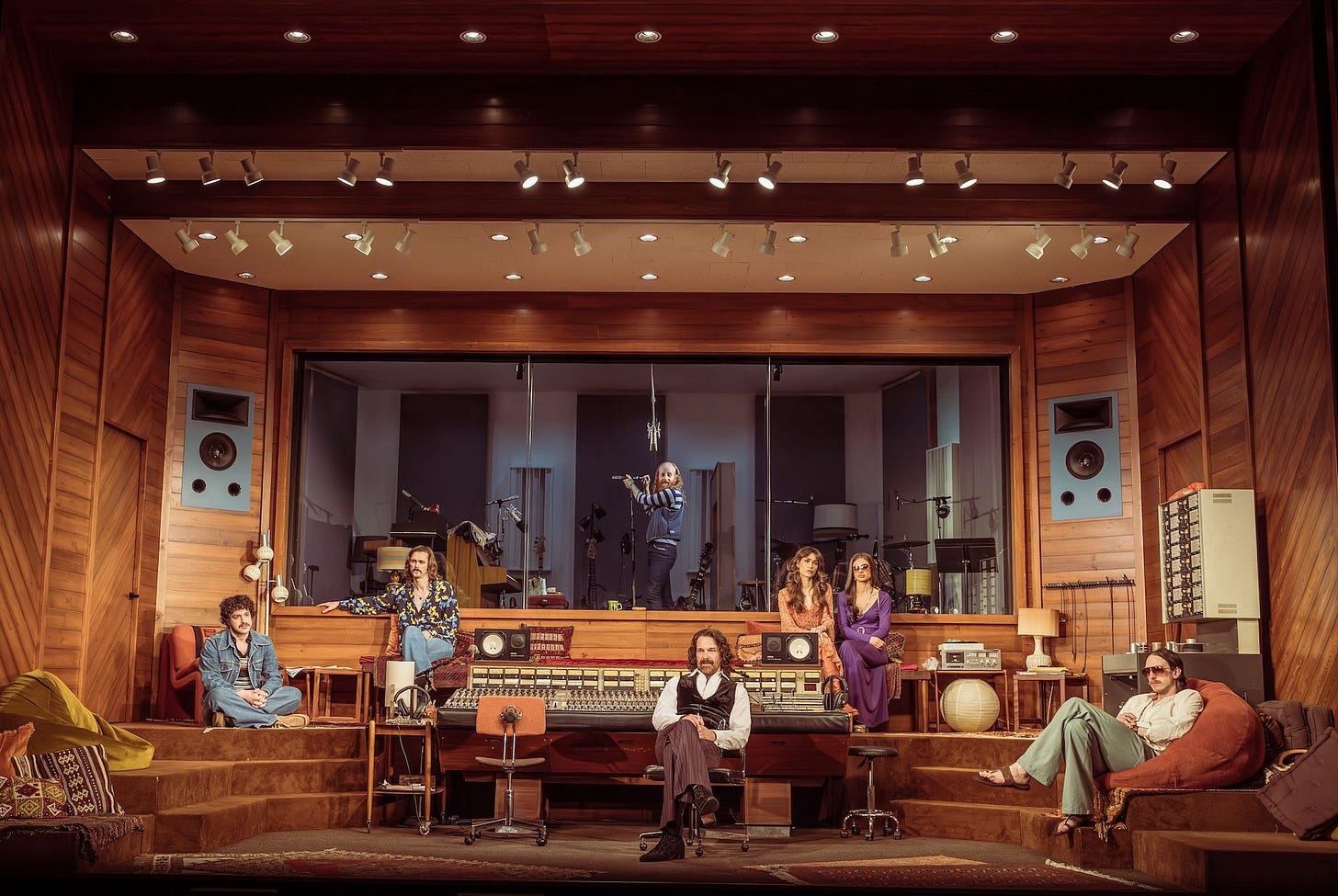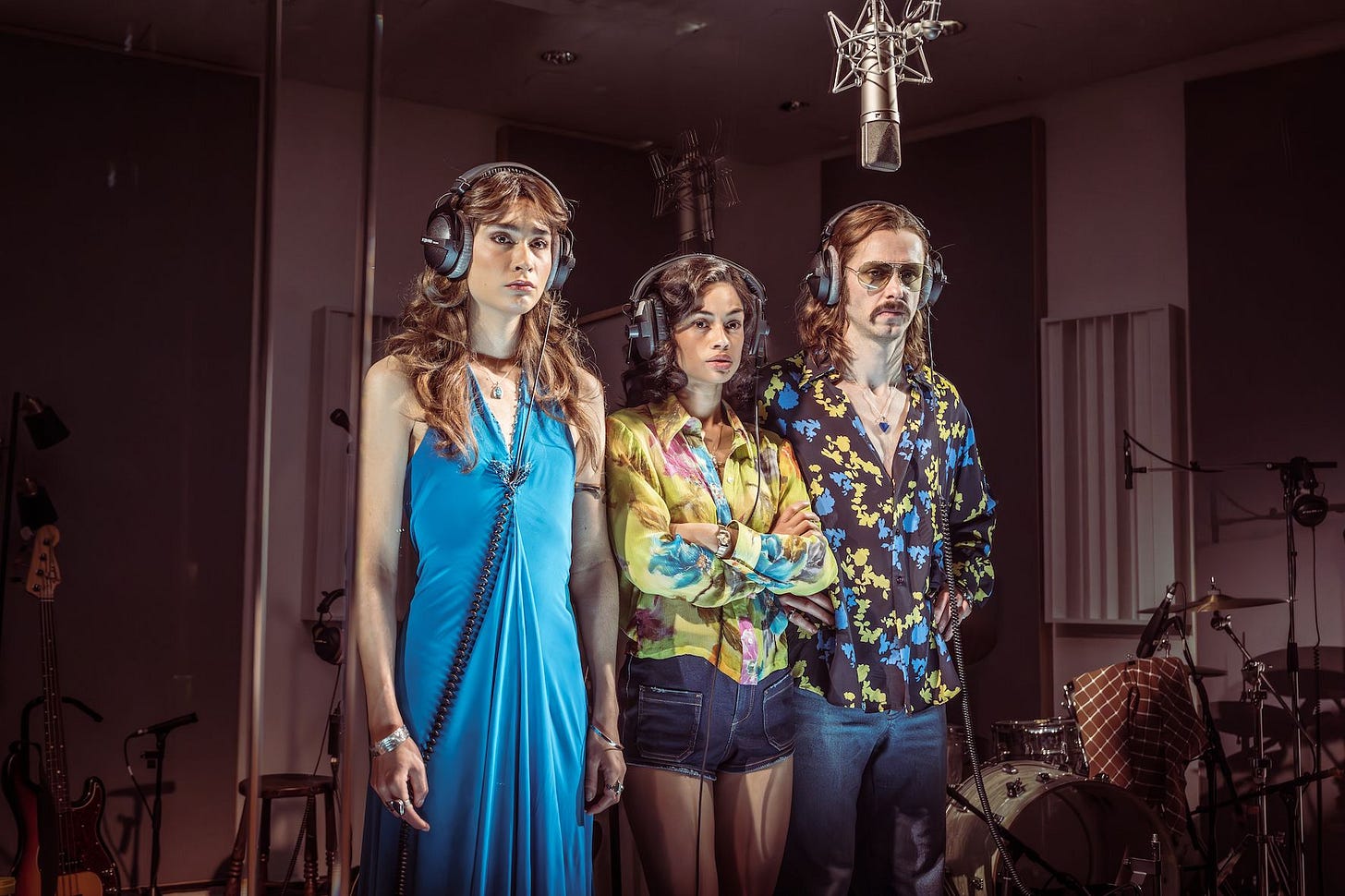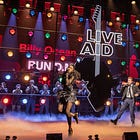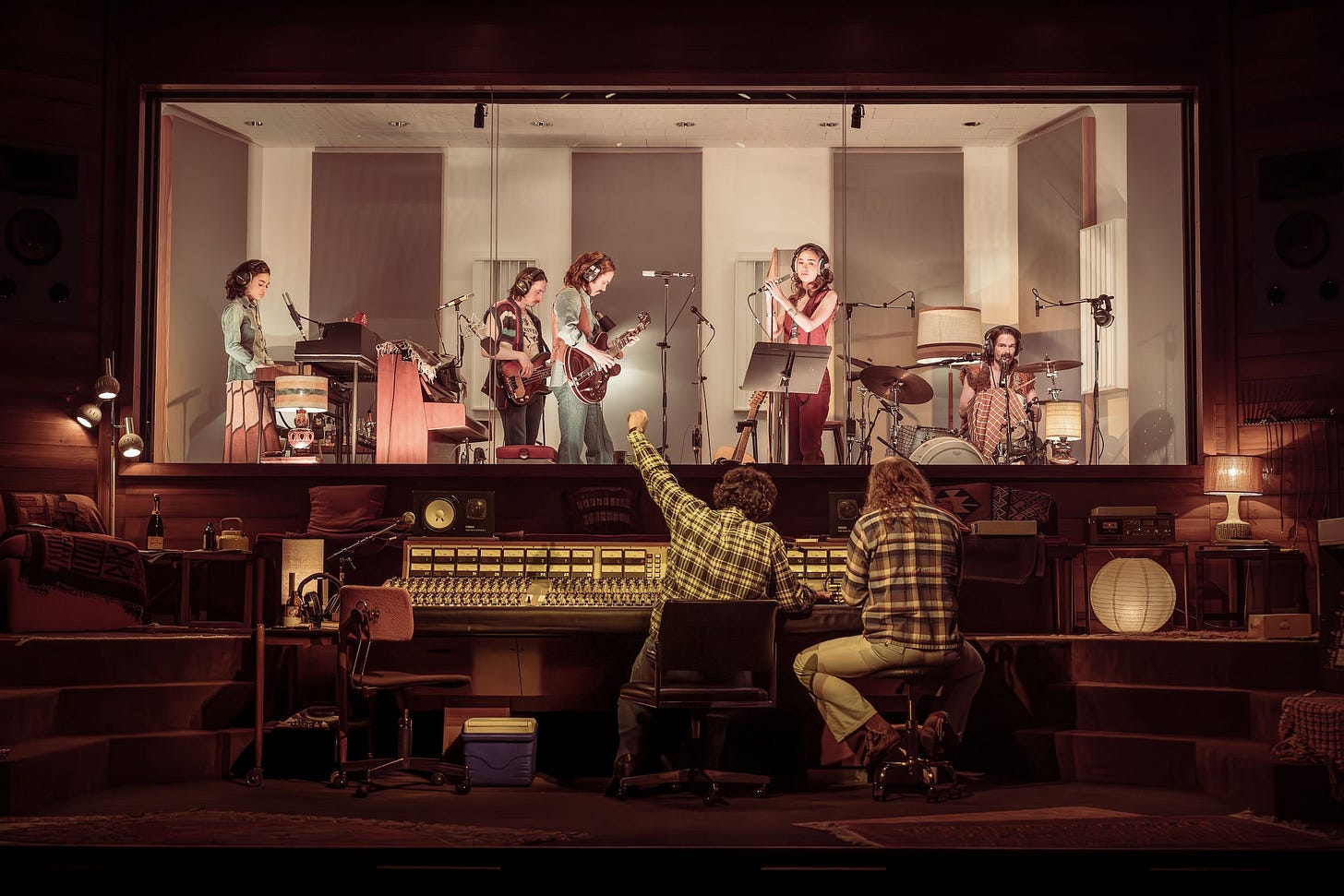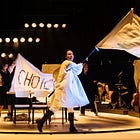Stereophonic at the Duke of York's Theatre Review
The record-breaking, multi Tony Award-winning production moves into the West End
Summer 1976. A rock band steps into a recording studio, hidden away from the heat of California. A recording journey, slated for one month, begins for the group's second album, unbeknownst to them the endurance that lies ahead.
Summer 2025. David Adjmi's acclaimed account of the fictionalised timeline of events opens in the West End under the looming heat of London. Having picked up 5 wins from a record-breaking 13 Tony nominations during its Broadway run, it's nothing short of epic.
The play takes place inside a spacious studio, spanning the entirety of the stage with impressive attention to detail in David Zinn's set design, predominantly featuring warm, wooden textures upon which display spotlights are hung across the stage as if in a showroom. Installed in the centre behind a large analogue mixer console are three clear glass panels, peering into the room where live performances are recorded. There is an obvious awareness of space and partition, yet the four corners of the room would soon become the only four corners the group would ever be seen traversing on stage.
Adjmi's book is deliberately paced, split across four acts (not dissimilar to the way Eugene O’Neill's Long Day's Journey Into Night is structured). Where Long Day investigates the dynamics of an isolated family within a single day, albeit written and set in different time periods, Daniel Aukin's direction on this play shares a similar tonal approach, with characters eventually spending a year inside the studio, condensed into a run time of over three hours. Every choice made is deliberate.
The band consists of vocalists and instrumentalists Diana (Lucy Karczewski), Holly (Nia Towle), Reg (Zachary Hart) and Peter (Jack Riddleford), founded by drummer Simon (Chris Stack). They are joined by audio engineers Grover (Eli Gelb) and Charlie (Andrew R. Butler - who delivers some cracking one-liners with sidekick-like energy), the latter trio of cast members reprising their roles from the Broadway production. Initially united by their shared passion for music, the group soon find themselves in the studio for much longer than expected as the sessions stretch out into the early hours, day after day.
Love rock in the West End? There's more than one day to see
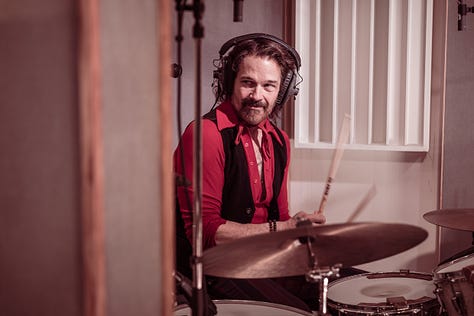
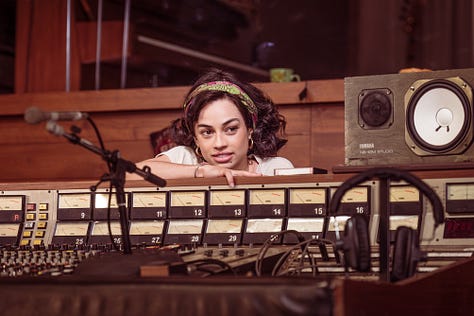
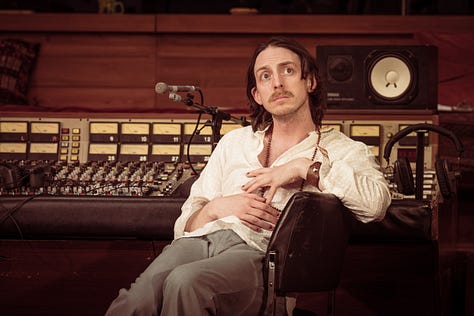
Central to the band's work is of course, original music - written for the play by Will Butler (best known for his work within Arcade Fire's discography). The score uses indie rock as the starting point, developing catchy melodic motifs and riffs into singles that could easily feel real in the context of the story; the way Daniel Aukin realises staging leans fully into realism, framing (and subsequently detaching from) the band's music as merely a fraction of a year in their lives. No directorial choice is left unpolished - the nuances in each character are exploited as the audience, as if viewers of a documentary, experience tension, frustration and a slow burn of emotions at the same pace as the characters themselves.
Dynamic chemistry between characters pushes the sense of entrapment when moments of stillness are interrupted by emotional outbursts; Reg, under the influence - wrapped in a blanket - half-consciously stumbles across the studio at unsociable hours, while Simon, first being a frustrated drummer refusing to use a click track, builds towards an eventual lashing out at the abusive Peter. There is a commitment to naturalism in the cast's performance as there is emotional depth.
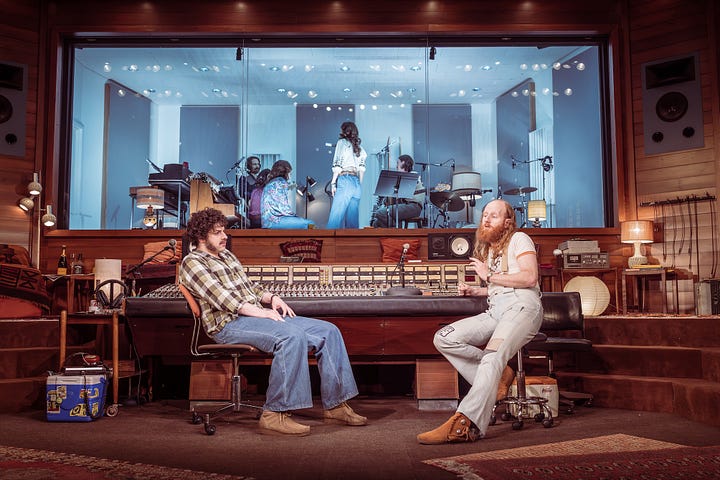

By Summer 1977, a year on and four acts in, personalities have developed, relationships have matured and the album finally sees a light at the end of the tunnel. There's a joy in seeing Diana and Holly stand up for themselves, but a further poignancy in watching Gelb's Grover in solitude in the final moments of the play; he peers from an almost third-person perspective into the seemingly psychopathic professional and personal lives (the line is blurred at that point) of musicians pouring blood, sweat and tears on the line for a burning flame still yet to be extinguished.
Previously from the team behind Stereophonic
The lights dim on the still frame of mixing, mastering and the countless work still being done on the album, leaving the audience reflecting on the odyssey just presented, how these experiences - the restless nights, the clashes and the breakups - may all be close to reality. A work of genius that will resonate (in stereo, 5.1 or binaural sound, whatever it may be) with any and all who have once chased a creative fire.
★ ★ ★ ★ ★
Stereophonic is booking at the Duke of York's Theatre until 11 October.
Book with London Theatre Direct for exclusive prices on performances through July, or visit the production website for more information.
Stream the Original Cast Recording below!
Tickets and Accessibility
🎟️ Tickets were kindly gifted by the press representatives for the production, with expectation of an honest, non-biased review. All opinions remain those of the writer, without any input or approval from the producers or venue. Standard tickets are priced from £25, with £30 tickets for Under 30s and £30 Rush tickets available for everyone on each performance day from 10am via the TodayTix app.
♾️ The production features live music played by instruments onstage, contrasting in volume to moments of dialogue in the rest of the play. Some songs are much louder than others (mainly due to guitars and drums used), and some incidental music are played suddenly during transitions.
Specific sensory moments of note will be added on this page shortly.





